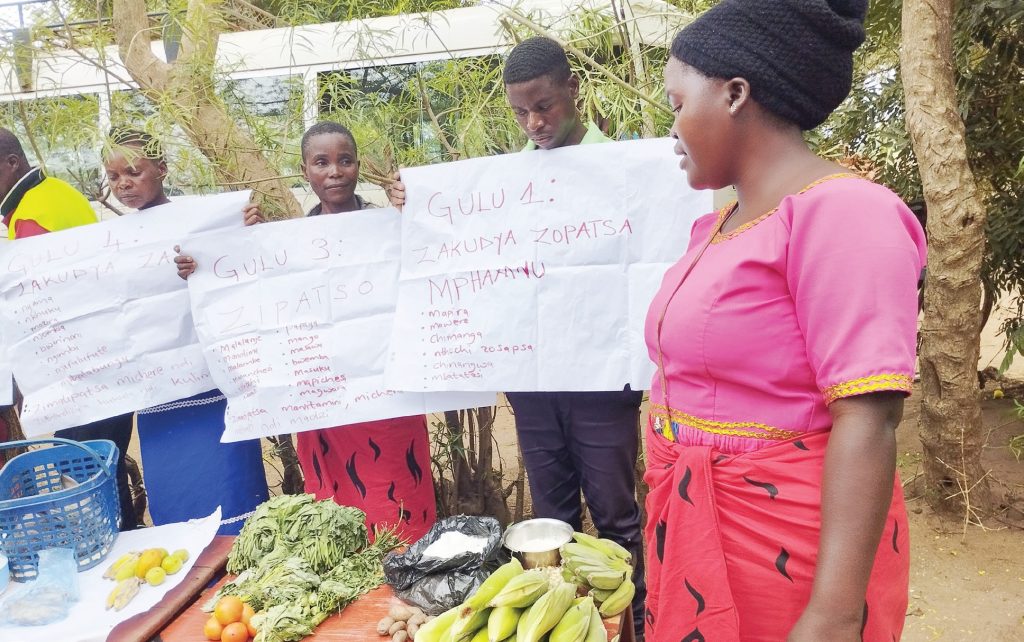Social support beneficiaries share success stories
Labita Jiston is a beacon of resilience. The woman, from Ndendela Village in Dowa District, illustrates the impact of Community Savings and Investment Promotion (Comsip) Cooperative Limited’s Social Support for Rural Livelihoods (SSRL) project through which she has turned her family’s fortune around.
She received K28 000 from the government under the Social Cash Transfer Programme, but did not know how to utilise the money to effectively support herself and her family.

Testifies Jiston: “It was difficult for me to provide basic needs for my family. I was struggling to buy school uniforms, clothes, notebooks and even food for my family.
“But after Comsip came, trained and taught us the benefit of working in groups, my life has changed.”
She says she joined Mbaula Cluster, a group formed in 2021 which now has 64 members. She then borrowed K5 000 which she invested in vegetable farming.
Says Jiston: “When I sold the vegetables, I earned K50 000. I repaid the loan and used the remainder to buy school uniforms for my children and other household needs. I also invested K10 000 in my tomato and vegetable business.”
From the vegetable business, she earned K90 000 and used K64 000 to procure a bag of fertiliser in preparation for this year’s growing season.
“I have also been able to buy vegetable seedlings and pesticides. I brought the fertiliser bag to the group for storage and safe keeping.” said Jiston.
Mbaula Cluster now has 63 fertiliser bags in preparation for the growing season.
SSRL Progress is a Malawi Government project funded by the Multi-donor Trust Fund and will run until 2024.
Comsip’s specific livelihood component primarily focuses on providing an economic inclusion package to recipients of the Social Cash Transfer and Climate Smart Public Works Programme.
Jiston and her cluster are just one of many beneficiaries in various districts nationwide.
At Kalawa Cluster in Traditional Authority (T/A) Mwansambo in Nkhotakota, 37 members have formed a savings and loans group after being trained by Comsip on how to save and invest the money they were receiving under the SSRL.
In an interview, Kalawa Cluster Community Facilitator Saulos Masito said previously, the group could not afford fertiliser from the contributions made in form of shares and loan interests from borrowers.
“So, we discussed and agreed that as a cluster, we should have a farm and grow soya beans besides doing piecework for us to achieve our goal of each member having access to fertiliser,” he said.
They raised K1.7 million from piece work, but it was not enough to buy fertiliser for every member in the group.
However, with skills and ideas from a Comsip sensitisation and training meeting on livelihood support, they sold their soya beans to the vendors and made K550 000.
“The groundnuts which we bought weighed 2 250 kilogrammes [kg] and were sold at K1 250 per kg. We brought all the money together and it was K4 million. So, as a group, we went and bought 62 bags of fertiliser which we have now,” said Masito.
Besides savings and investments, the group has also procured goats for members in the group and they are also anticipating buying farm land for group production and constructing a warehouse for storage to alleviate storage challenges which they now have.
The SSRL Programme aligns with the Malawi National Social Support Programme II and operates in 14 districts, including Chitipa, Nkhotakota, Kasungu, and Dowa.
It comprises three packages, including the basic livelihoods package where Comsip focuses on transformative training sessions covering various aspects such as forming and managing groups, fostering savings, enhancing financial literacy, promoting better nutrition and health practices, addressing gender dynamics, implementing environmental and social safeguards, and heightening community awareness on disaster risks.
Comsip Cooperative Limited spokesperson Mercy Kayuni said it is under the basic livelihood package that they encourage social cash transfer beneficiaries to create savings and loan groups and also equip them with skills to utilise group savings and loans for initiating both individual and collective business endeavours.
She said the approach has fostered their capacity to buy fertiliser since the beneficiaries of social protection programme and the Climate-smart enhanced public works programme are not eligible for AIP.
“So, we encourage and train these beneficiaries so that they should be able to save and invest in cash plus intervention by doing business so that at the end of the day they should be able to purchase fertiliser at the market price,” said Kayuni.
Other clusters that have benefited from the SSLRP are Umodzi Savings and Loans Group in Nkhotakota, which has 26 members and has also bought 26 bags of fertiliser after making their business investments and savings to maximise their little income.
The group was also formed in 2021 after sensitisation and training by Comsip on how to save and invest the money they receive under social protection programmes so that they become self-reliant and do away with poverty.
From the progress demonstrated by these clusters, the group members are well on their way to beating poverty.





